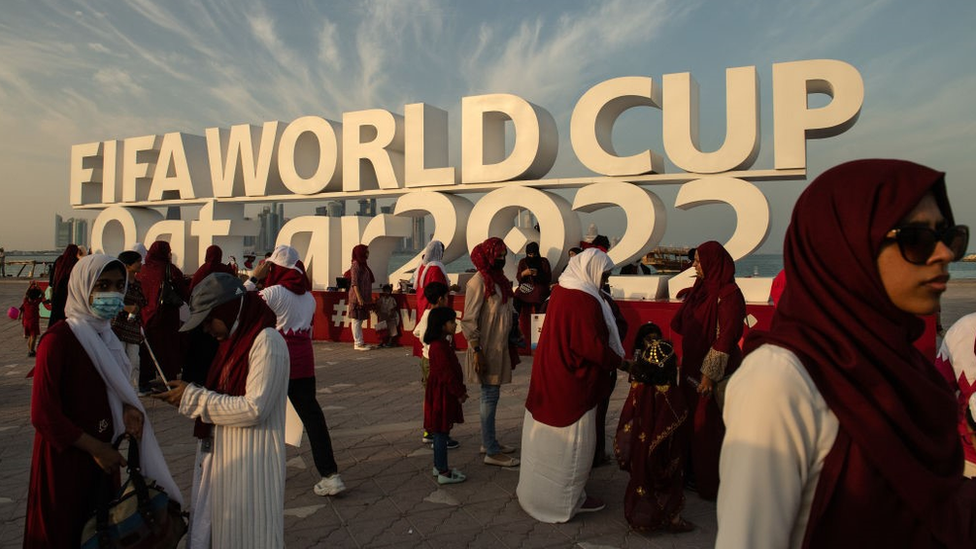World Cup 2022: 'I am very afraid', says Qatari transgender woman
- Published
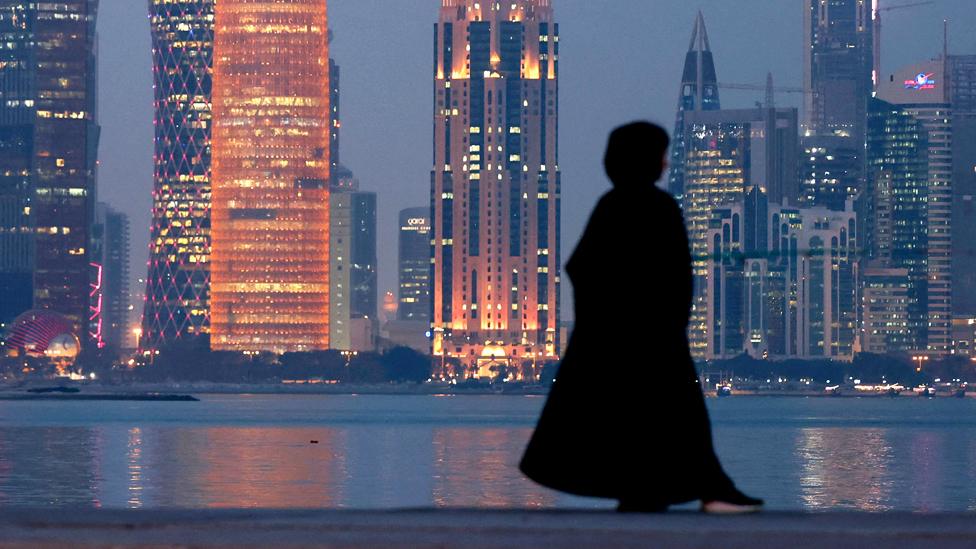
Controversy about Qatar hosting football's World Cup has mostly focused on LGBT rights in the country and around same-sex relationships being criminalised. Transgender Qataris can be detained for "violating public morality", which requires no trial or official charge. BBC News has spoken to two trans Qataris about their lives.
"I am very afraid, but I just want people to know that we do exist," Shahd says about her decision to speak out about life as a transgender woman. Like the other person in this article, we have changed Shahd's name to protect her.
We have been messaging her over an encrypted app for her safety, and she travels away from her home to video call us in secret from a darkened room.
Shahd shows us her hair which she was forced to cut into a masculine style, but does not reveal by whom.
She then unbuttons her shirt to show us wounds on top of her chest.
Shahd says the wounds are the consequence of being arrested for "impersonating a woman". Authorities told her to remove breast tissue that had formed since she started taking oestrogen, which she got without prescription from another country.
"I lost my job and my friends," she says.
"I was arrested and interrogated several times because of my identity. I lost everything."
Qatar is one of more than 60 countries where it is illegal to be gay. In Qatar, homosexual acts are against the law because they are considered immoral under Islamic Sharia law.
Punishments include fines, prison sentences of up to seven years - and even death by stoning, although there is no record that this has happened.
Police are able to detain someone for up to six months on suspicion of breaking "community protection" laws without trial or charge if they suspect a person has "violated public morality".
Shahd says she is constantly in fear of arrest.
A recent report by non-governmental organisation Human Rights Watch, external detailed the arrests of LGBT people in Qatar, and found several trans people were among them, based solely on expressing their gender through clothes, hair or make-up.
Shahd avoids crowded places at busy times of the day, because she feels people stare at her and might report her to the police.
She says she has been arrested for "imitating a woman" while wearing make-up, and describes the government's preventive security department - a branch of Qatari law enforcement - as like a "gang".
"They capture you and prevent you from telling anyone where you are. The prison is underground where they treat you like a criminal," she says.
"You will be handcuffed," she said, laughing dryly as she added, "this is to protect society from us."
We were unable to independently verify Shahd's account of being arrested, because she received no official record of being detained.
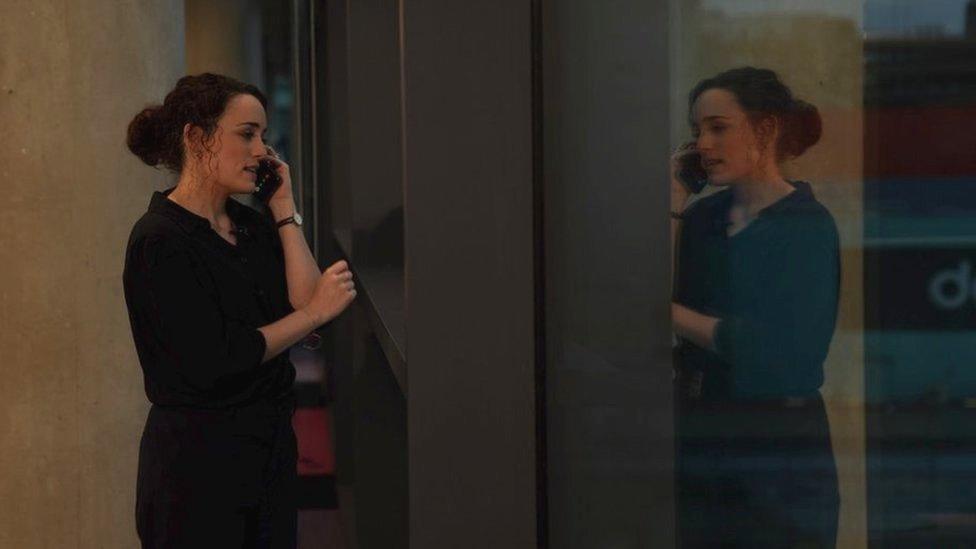
The BBC's Lauren Moss spoke to Qataris using encrypted messaging apps. All were too scared to use their real names or show their faces
Shahd says anyone who has been to prison for similar reasons to her is sent to a doctor for so-called "conversion therapy". She shows us screenshots of her referrals to sessions at a therapy centre in Doha. A Qatari government official denied that the government operates or licenses any "conversion centres".
"They told me I might go to hell because of this, but I believe God created me the way I am," she said.
"I am a woman. If I could be a man, I would. My life would be much easier."
Things got so bad for Sara, another transgender woman, that she fled Qatar and is now applying for asylum in Europe.
She tells us how she left everything she knew behind, taking just one bag of belongings and little money.
"I was at my breaking point of either committing suicide or leaving and I decided to leave."
Sara says she too has been forced through conversion therapy several times. But she does not believe calls to boycott the World Cup over Qatar's laws on homosexuality are productive.
"Many other countries also have these laws, but people are only calling out Qatar and saying Qatar should not be hosting the World Cup."
The chief executive of football's governing body Fifa has called for attention to be on the competition, rather than politics. However, various charities and organisations are continuing to demand that it gives assurances that no other country with anti-LGBT laws is able to host the World Cup in the future.
Qatar has "categorically rejected" the claims made by Shahd and Sara.
A government official reiterated its much-repeated message that "everyone is welcome" at the World Cup, and said that fans "from all walks of life come together in Qatar to build bridges of friendship and break down barriers of misunderstanding".
The official claimed Qatar "does not tolerate discrimination against anyone" and is among the safest countries in the world. However, a recent report by Amnesty International, external disputes these claims.
Additional reporting by Julien Hajj
- Published29 November 2022
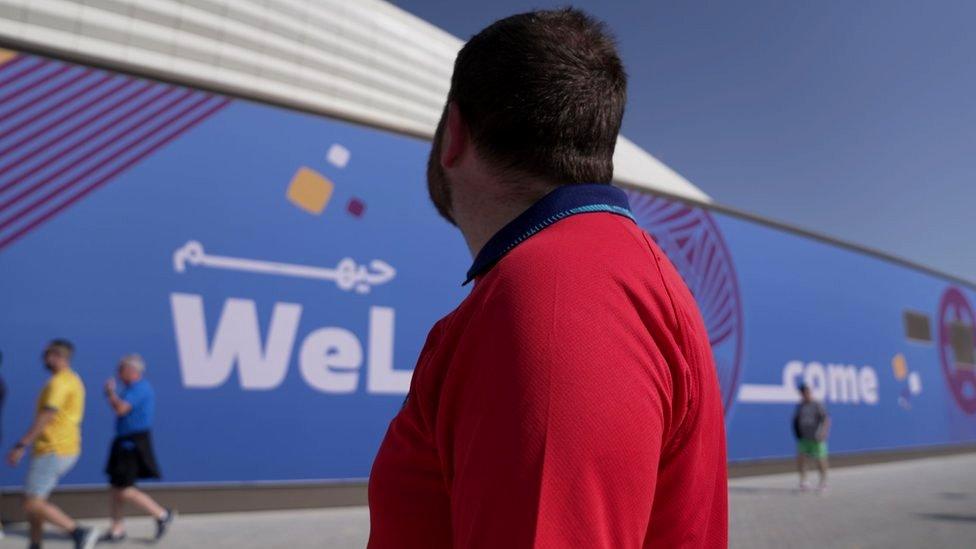
- Published17 November 2022
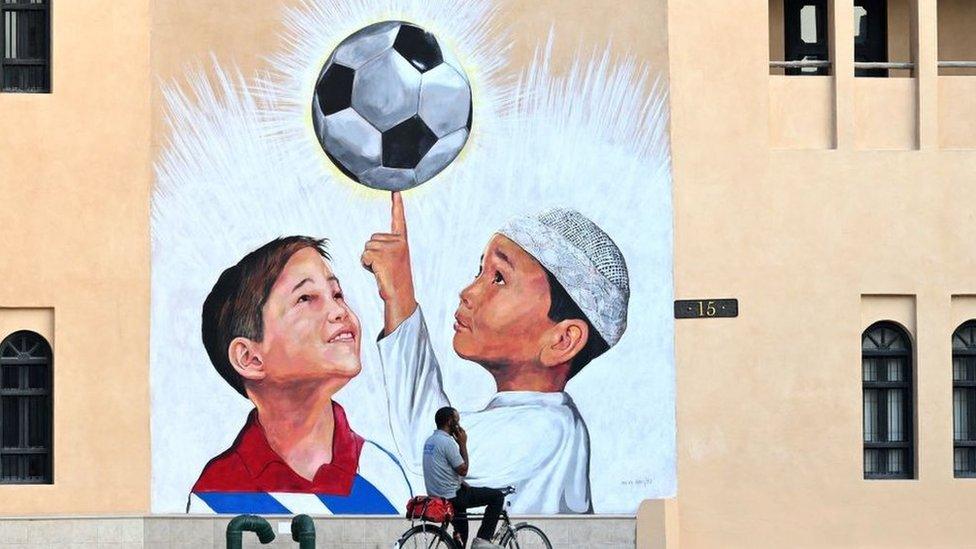
- Published19 August 2021
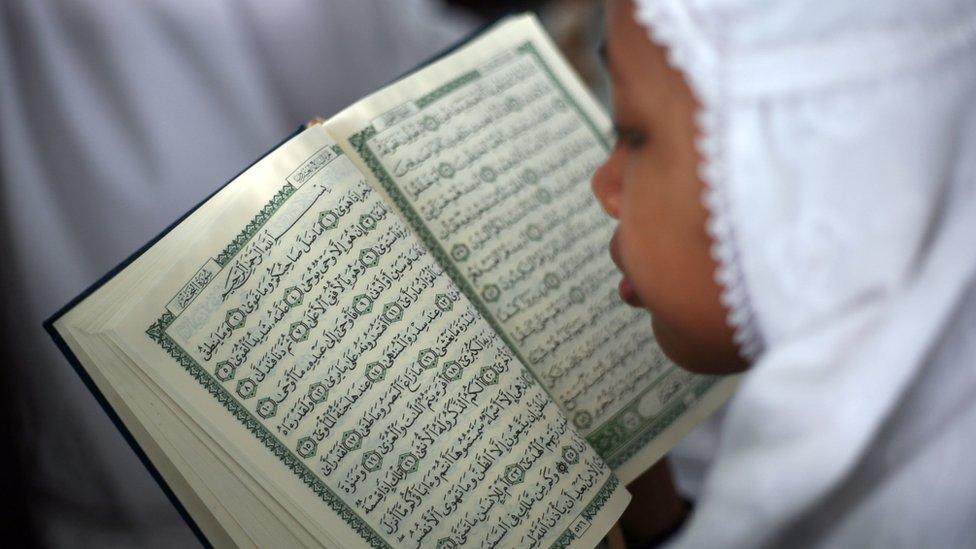
- Attribution
- Published18 November 2022
